Cornea
What is the Cornea?
The cornea is the clear area that lets light in through to the eyes. When you look at the color of someone’s eyes, you’re actually seeing the iris (the colored part of the eye) through the cornea.
The cornea is comprised of 5 layers, with each layer performing a specific function. If there are problems with any of the layers, whether a new issue or one that has been present since birth, it can cause a person to experience a range of vision issues from blurry vision to blindness.
The type and severity of cornea problems depends on where and when the problem started as well as the cause of the problem. Where and when the problem started will determine what part of the cornea is affected and what type of symptoms the patient can experience. Medical conditions can also cause corneal issues like Vitamin A deficiency, High cholesterol, Lead poisoning, etc. Simply put, many different factors can affect the cornea, and ultimately your vision.
If you’re having any of these symptoms, such as dryness, irritation, redness, inflammation, swelling, or pain, call to make an appointment with a specialist in our office today to get the attention and care you need.
Common Corneal Conditions
Corneal abrasion: A scratch to the cornea. Treatment for a scratched cornea may include eye drops and/or topical antibiotics. If left untreated a corneal abrasion can cause infection and a corneal ulcer, which can threaten your vision.
Contact Lens Over-wear: This occurs when the patient either wears their contact lenses for too long a period or wears them during sleep. This can lead to a Corneal Infection. Symptoms include redness, soreness, blurry vision, irritated eyes and/or vision loss.
Corneal Infection: An infection in your cornea which can result from many sources, including corneal abrasion and contact lens over-wear. A corneal infection can be vision threatening and needs urgent attention. If you believe you may have a corneal infection, call our office today to make an appointment.
Keratoconus: A condition where the cornea bulges out and becomes irregularly shaped, causing blurry vision, sensitivity to light, pain and even vision loss. Treatment varies according to the stage and severity of the disease.
Corneal Transplant Surgery / Transplant Rejection: It is extraordinarily important to contact your ophthalmologist or cornea specialist if you are having issues after cornea transplant surgery, including blurry vision, redness, sensitivity to light, pain, or vision loss.
LASIK/LASEK: These are vision correction surgeries which can result in post operative issues, such as corneal abrasion, moderate to severe dry eyes, and changing prescriptions later in life. These procedures can be a great option for the right set of eyes and offer long-lasting, glasses-free vision and only become safer and more affordable over the last few years. Want to be glasses-free or done with your Contact Lenses –> Find out today if LASIK is right for you?
In addition to this list, there are many conditions related to the Cornea that cause patients to see a Cornea specialist. Some of these conditions can threaten your vision and require immediate attention

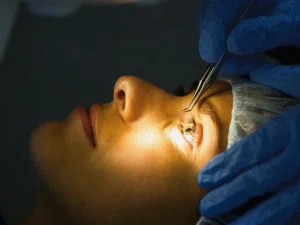
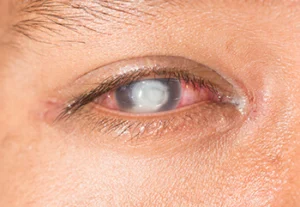
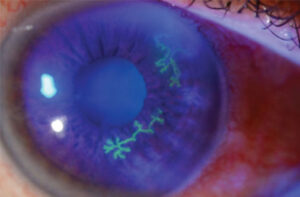

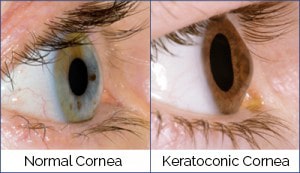
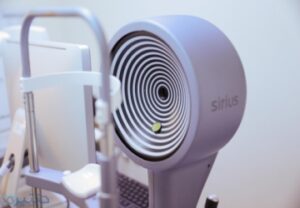
Cornea Testing
There are many issues involving the cornea that can result in having to see a cornea specialist. Once at the doctor’s office, there are a number of diagnostic tests that need to be performed, in addition to the comprehensive ocular exam done in our clinics. These additional, more advanced diagnostic tests may include optic coherence tomography (OCT), ultrasound bio-microscopy, corneal pachymetry, corneal topography, and specular microscopy. This is not a complete list of all tests available, so be aware that the doctor may order additional testing, according to each patient’s needs.
At Vision Specialists of California, it is our duty to fully evaluate and treat your eyes according to the guidelines set forth by the American Academy of Ophthalmology. We treat you with the time and respect you deserve as not just another patient, but as a valued member of our community.
